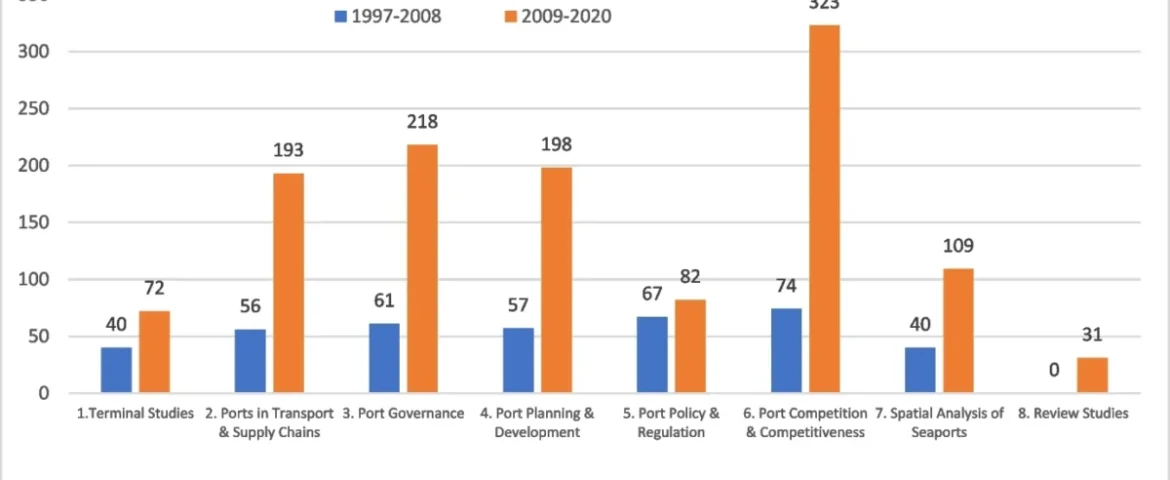The latest port study of PortEconomics members Thanos Pallis, Evie Kladaki and Theo Notteboom analyses published research in port economics, policy and management (port studies) based on examining all relevant academic journal papers published from 2009 to 2020.
The systematic review of all 1227 papers relies on quantitative and qualitative bibliometric tools to reveal the structures of the research community (i.e., authors’ country of affiliation, number of authors involved, and international collaboration rates) and the themes and content of port research (i.e., research approaches, units of analysis, ports and commodities examined, levels of research localisation, port markets commonly (not) studied).
It also presents a taxonomy of port studies based on a content classification of the themes and sub-themes examined. The paper concludes with a citation analysis that reveals the coherence of port research.
The analysis is enriched by comparing the findings with similar studies focusing on the 1997–2008 timeframe. This unique monitoring of a period that expands over a quarter of a century offers a valuable tool for better understanding the research landscape and deciding directions for future research.
The study also revealed the dominance of research and analysis focusing on container ports sustains. Issues related explicitly to the economics, management, and policy of container ports are the themes of 51% of the port studies under examination, a percentage similar to those observed in 1997–2008. While the structure of global maritime trade makes this inevitable, opportunities continue to exist for broadening the scope of the research focus to other commodities and trade flows (i.e., bulk, fruit, vehicles, the cruise market, and passenger ships).
From a theoretical perspective, the study provides evidence of the rapid transformation of port economics, policy and management into a mature research field.
Published in the scholarly journal WMU Journal of Maritime Affairs, the study is available in open-access format thanks to HEAL-Link (Hellenic Academic Libraries Link) – visit the journal page and enjoy the reading (note: the supplementary material provides a complete list of all papers reviewed).












